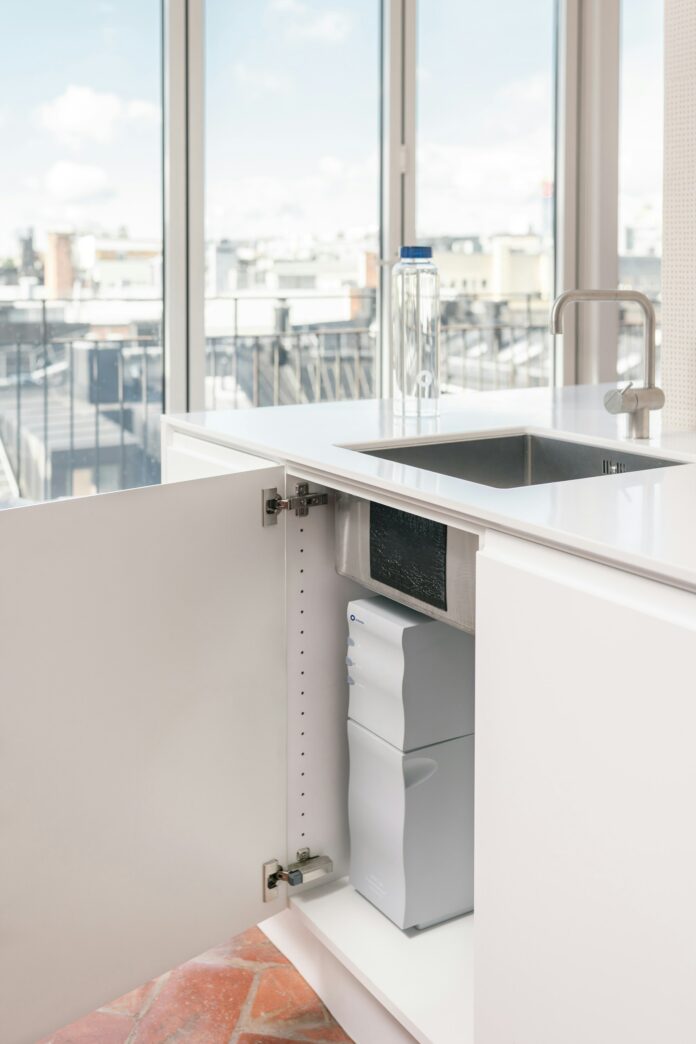You may not realise, but there are a fair few unseen pollutants lurking in your tap water. Obviously, this is dependent on where you live, but these contaminants can pose health risks and compromise the quality of your water supply.
Within this guide, you’ll begin to understand how a home water filtration system can safeguard your well-being and the health of your loved ones. By taking a closer look at the benefits of investing in a filtration system, you’ll find the reasons why this may need to be the latest addition to your home.
What’s really in your tap?
When you turn on your tap in the UK, you may be unaware of the impurities present in your water. While water treatment plants do their best to provide clean water, contaminants like lead, chlorine, pesticides, and bacteria can still find their way into your tap water. These impurities can impact the taste, odour, and (rarely) the safety of the water you consume.
This is where a home water filtration system comes in. By installing a water filtration system in your home, you can remove these unwanted contaminants and make certain that the water you drink, cook with, and bathe in is clean and safe. It will provide you with peace of mind, knowing that you’re taking those extra steps to cut out potential pollutants.
How does water filtration work?
Understanding how water filtration systems work might help you get a grasp of the process and how it can guarantee the water you consume is clean and safe.
Water filtration works by passing water through different filters that trap contaminants. The most common types of filters include sediment filters, activated carbon filters, reverse osmosis filters, and UV filters. Here’s a quick rundown:
- Sediment filters remove large particles like dirt and sand.
- Activated carbon filters absorb organic compounds and chlorine.
- Reverse osmosis filters use a semipermeable membrane to remove molecules, ions, and larger particles.
- UV filters use ultraviolet light to disinfect water by killing bacteria and viruses.
By using any or combining these different types of filters, water filtration systems will start getting rid of those impurities.
Health benefits of filtered water
Filtered water isn’t going to suddenly get you started on a mystical diet plan that makes you lighter, wealthier, or more flexible, but it does have some small benefits that might make you more comfortable in day-to-day life.
One of the primary advantages of filtered water is the removal of chlorine and its byproducts. Chlorine is commonly used to disinfect water, but consuming it can in some cases, lead to respiratory problems and bladder cancer.
The removal of harmful bacteria and parasites that may be present in unfiltered water reduces the risk of gastrointestinal illnesses. On top of that, filtered water also helps in reducing exposure to heavy metals such as lead and mercury, which can have an impact on your body long term.
Finding the best home water filtration system
To choose the best home water filtration system, you do need to assess your specific water quality needs and household requirements. Getting an understanding of what contaminants are present in your water will help determine the type of filtration system you need.
Consider factors such as the source of your water, whether it’s well water or municipal water, and any particular issues like hard water or chlorine taste. Here are three key points to take into account:
- Water Quality Testing: Conduct a water test to identify the specific impurities in your water. This will help you select a filtration system that works for you.
- Filtration Method: Once you know what to target, look for a filter that matches. Whether you opt for reverse osmosis, carbon filters, or UV purification, choose a system that addresses your problem.
- Flow Rate and Capacity: Take into consideration the flow rate and capacity of the filtration system to make sure it can meet your household’s water usage needs without compromising efficiency.
A greener approach
Doing everything the greener way is always an important consideration, and the same goes for water filtration systems. Look for systems that are certified by organisations like the Water Quality Association to guarantee they meet environmental standards.
Filters that use renewable energy sources, such as gravity or hand-pump systems, to diminish electricity consumption are also good picks. Consider models with long-lasting filter cartridges made from recyclable materials to minimise waste.
Of course, the more efficient the system, the less power it will demand because it conserves more water.
Start Looking For A Water Filtration System For Your Home Today
Investing in a home water filtration system is essential for keeping clean and safe drinking water. By removing contaminants and impurities, you can protect your health, eliminate potential risks, and promote a healthier lifestyle.
With the right filtration system in place, you can enjoy better-tasting water that’s free from substances, making it a worthwhile investment for your overall well-being.
Help keep news FREE for our readers
Supporting your local community newspaper/online news outlet is crucial now more than ever. If you believe in independent journalism, then consider making a valuable contribution by making a one-time or monthly donation. We operate in rural areas where providing unbiased news can be challenging. Read More About Supporting The West Wales Chronicle























